S U Sunny
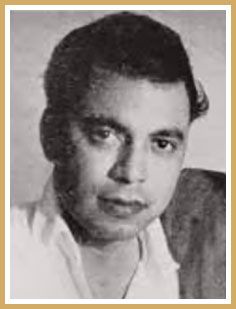
Subscribe to read full article
This section is for paid subscribers only. Our subscription is only $37/- for one full year.
You get unlimited access to all paid section and features on the website with this subscription.
Not ready for a full subscription?
You can access this article for $2 , and have it saved to your account for one year.
- Born: 9 November 1915 (Allahabad)
- Died: 1966 (Bombay)
- Primary Cinema: Hindi
Well-known producer-director S U Sunny is known for films such as Kohinoor (1960), Mela (1948), Uran Khatola (1955), and Palki (1967). Born on 9 November 1915 in Allahabad, United Provinces of Agra and Oudh, British India, he started off as an assistant to prominent filmmaker A R Kardar. He would go on to direct many landmark films of Hindi cinema.
Among the earliest films he directed, were Namaste (1943) which he co-directed with M Sadiq. The cast of Namaste included Allauddin, Protima Dasgupta, and S B Nayampalli. With the family drama Geet (1944), which starred Shahu Modak, Nirmala Devi, and Amir Ali, he debuted as a solo director. The drama film Shanti (1947) saw him direct a cast comprising Latika, Sunalini Devi, and Pratima Devi. The same year, he directed the family drama Natak (1947), starring Shyam Kumar, Suraiya, and Amar.
In 1948, his directorial Mela hit the screens. A romantic tragedy film, it was made under the banner of Wadia Movietone. Starring Dilip Kumar, Nargis, Jeevan, Rehman and Nur Jehan, the film's music was composed by Naushad, with lyrics by Shakeel Badayuni, and story and dialogue by Azam Bazidpuri. The musical, set in a village milieu, depicted the tragic love story of Manju and Mohan. Manju is married off to a 70-year-old man, who declares that he didn't realise he was being married to someone so young. After the husband's death, the lovers meet and Manju dies accidentally. Mohan is convicted for her murder, and after spending 20 years in jail, he too falls off the cliff and dies when he follows Manju's spirit. Released on 8 October at Excelsior cinema, Bombay, the film became a commercial success. Its music was considered to have played a key part in its box office success. It included songs such as Dharti ko aakash pukaare and Taqdeer bani banke bigdi rendered by Shamshad Begum, the bidaai song Gaaye jaa geet milan ke sung by Mukesh, and the Mohammed Rafi-rendered Yeh zindgi ke mele, which further boosted his popularity.
Babul (1950) saw him direct a tale about two fathers, one poor and the other rich, who hope that a wealthy postmaster weds one of their daughters. It starred Nargis, Dilip Kumar, and Amar. A box office success, the film became the second highest earning film of 1950.
His directorial of 1955 – the comedy-fantasy Uran Khatola starred Dilip Kumar, Nimmi and Surya Kumari. It revolved around a man's plane crashing in a city that is ruled by women. He starts liking the peasant girl who rescues him. However, the queen of the city also likes him but discovers that he likes someone else. The film's music was composed by Naushad, with lyrics by Shakeel Badayuni. The songs O door ke musafir ham ko bhi saath le le re, More saiyan ji utrenge paar, Ghar aaya mehman koi, Mera salam le ja became popular.
In 1960, he directed Kohinoor, an action adventure film produced by Dr V. N. Sinha. It starred Dilip Kumar, Meena Kumari, Leela Chitnis and Kumkum. Music for the film was scored by Naushad. The film was a huge box-office success. The tone of the film was light. It is said that Dilip Kumar took up this fun and frivolous part, as he had been advised to choose less sombre films, after going into a depression essaying tragic roles in films such as Devdas (1955). Interestingly, the film also starred the female lead, Meena Kumari, in a role that was not of her usual melancholic variety. Otherwise known as the Tragedy Queen, this film saw her pull off some rare comic scenes. The duo respectively essayed a prince and princess of different kingdoms-- Rajkumar Dhivendra Pratap Chandrabhan and Rajkumari Chandramukhi—in this entertainer replete with sword fights, songs and dances. The film included the melodic songs Madhuban mein Radhika nache re, and Do sitaron ka zameen par hai milan aaj ki raat. Dilip Kumar also won a Filmfare best actor award for his performance
Palki, his family drama which released in 1967, was completed by Mahesh Kaul, and released after his demise. Starring Rajendra Kumar Tuli, Waheeda Rehman, and Rehman it told the tale of Naseem, who lives a poor lifestyle with his widowed mother in Lucknow. He is well-known for his poems, and gets invited to a contest hosted by Nawab Naseemuddin who has offered a reward of Rs 5000 to the winner. Naseem does win this award, but is humiliated as his coat his torn. As a result he refuses to accept the price. His to-be brother-in-law Sultan, in order to hasten his sister, Mehrunisa's marriage to Naseem concocts a plan in which Naseem finds the reward buried in his yard. As a result, Naseem and Mehrunisa get married, but that night itself both find out Sultan's trick, and postpone the marriage nuptials till such time as they are able to return every paisa to the Nawab. Naseem re-locates to Bombay. Shortly thereafter his money-orders start arriving and within a few years the amount to be returned is almost accumulated. Then the family receive news that there was an explosion in the shipyards where Naseem works, about 300 people are killed, and Naseem is believed to be dead in a fire that lasts for three days. A devastated Mehrunisa loses her mind, while Naseem's mother decides to go on Haj. But Naseem is still alive at Bombay Hospital. When he recovers, he returns to Lucknow and is told by Sultan that Mehrunisa has passed away. He goes to pray at her grave-side and this is where he sees a ghost-like apparition resembling Mehrunisa.
S U Sunny passed away on 1966 in Bombay.
References
https://www.facebook.com/391149464326895/posts/s-u-sunny-and-m-sadiq-were-producer-director-a-r-kardars-colleagues-and-assistan/1832686943506466/
Mubi.com
https://www.imdb.com/name/nm0839348/
Image courtesy: https://www.indianfilmhistory.com/crew/s-u-sunny








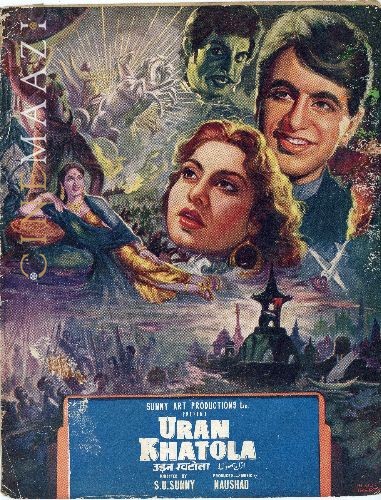
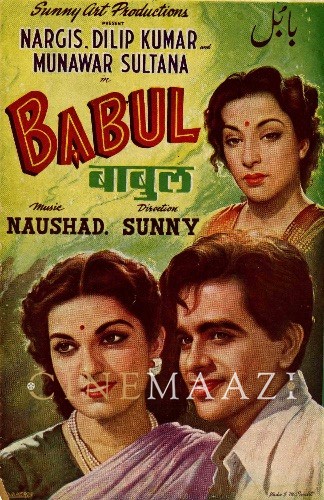
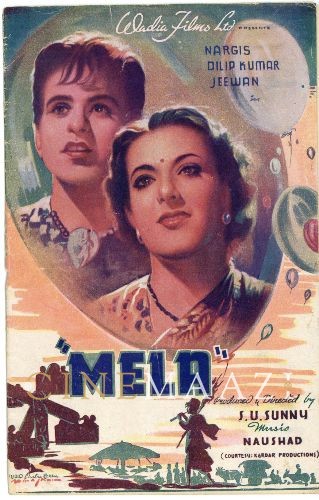

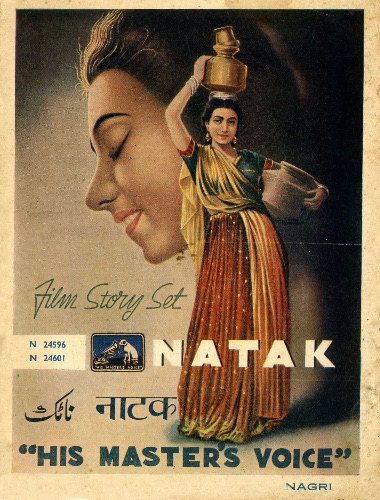
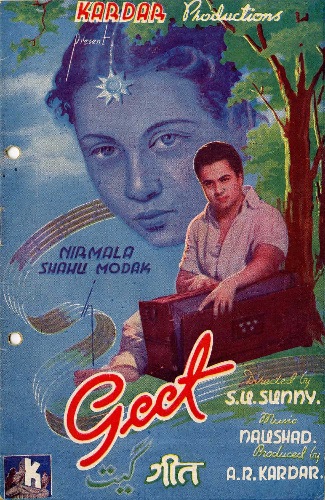

.jpg)



